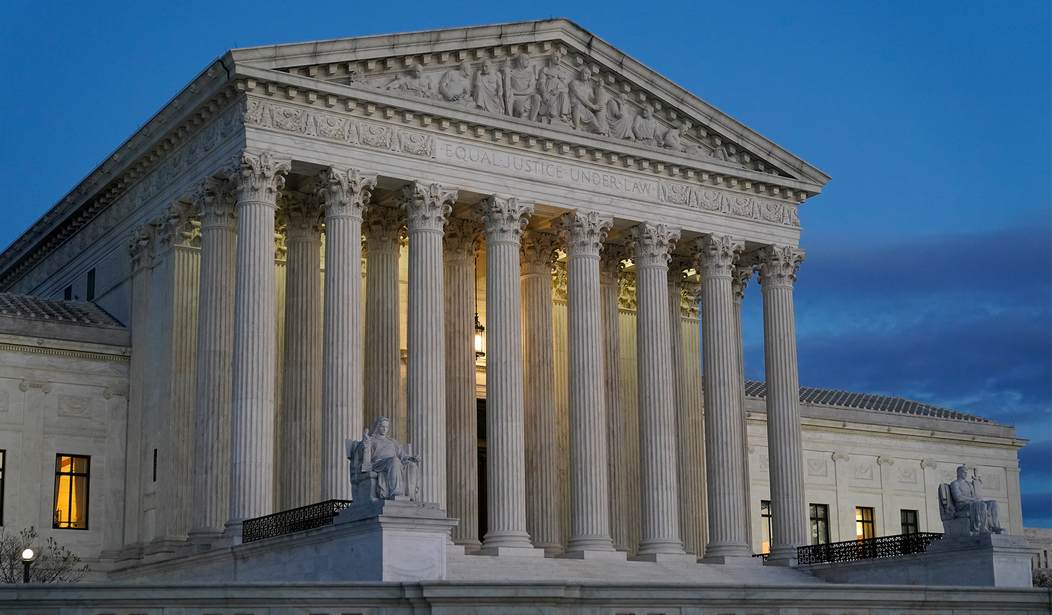The Supreme Court of the United States announced on Monday that it had agreed to hear arguments in a case dealing with the constitutionality — or unconstitutionality — of an entire federal agency: the Consumer Financial Protection Bureau.
Specifically, the case deals with how the CFPB is funded. Currently, the Federal Reserve keeps the CFPB's lights on, rather than Congress which has responsibility of funding the rest of federal bureaucracy. The decision for SCOTUS to take the case comes after a lower court — the U.S. Court of Appeals for the Fifth Circuit — ruled that the CFPB's funding system is unconstitutional in a unanimous decision. Instead, the panel said that the CFPB should be funded by Congress.
"The Bureau’s funding scheme is unique across the myriad independent executive agencies across the federal government," the appeals court's ruling noted. "It is not funded with periodic congressional appropriations," as the rest are.
In the wake of the lower court ruling, the Biden administration sought to appeal the decision to the Supreme Court in the current term. And, while SCOTUS did agree to hear arguments in the case, it delayed the case until its next term which won't get underway until October, likely pushing a decision on the case to June 2024.
Senator Tim Scott (R-SC) responded to the Supreme Court's order taking up the case by noting that the "CFPB has long been an agency that lacks transparency and seeks to operate beyond its jurisdiction," adding "I look forward to reviewing the Supreme Court’s decision, when the time comes, and continuing my efforts to hold the CFPB accountable to the American people and Congress."
Senator Tom Cotton (R-AR) added his voice, saying the Supreme Court ought to "strike down" the agency's "unlawful" funding system.
Recommended
The CFPB is a rogue, unconstitutional agency that only protects left-wing bureaucrats and trial lawyers.
— Tom Cotton (@TomCottonAR) February 27, 2023
The Supreme Court should strike down the CFPB's unlawful funding scheme.
In addition, Senator Bill Hagerty (R-TN) said that for "far too long, the CFPB has operated outside of the appropriations process and as such, has been operating in an entirely unaccountable manner," which he said explains "precisely why I introduced the CFPB Accountability Act last Congress to fix this glaring separation-of-powers issue."
The CFPB was created by a provision in the Dodd-Frank Act which was passed in the aftermath of the financial crisis of 2008, and designed to have its funding system circumvent Congress in an attempt to make it less susceptible to the changing political winds that carry parties in and out of power in the House and Senate. It has been referred to as the "baby" of Senator Elizabeth Warren (D-MA), who came up with the idea for the CFPB while she was still a professor and hadn't yet been elected to the U.S. Senate.
Warren, predictably, is not pleased that the appeals court ruled her "baby" is constructed in an unconstitutional manner, and released a statement and tweet lamenting "years of desperate attacks from Republicans and corporate lobbyists." Warren's statement continued by noting "the constitutionality of the CFPB and its funding structure have been upheld time and time again."
Despite years of desperate attacks from Republicans & corporate lobbyists, the constitutionality of @CFPB & its funding structure have been upheld.
— Elizabeth Warren (@SenWarren) February 27, 2023
If the Supreme Court follows precedent, it will strike down the Fifth Circuit’s decision before it throws our economy into chaos.
But, as Vespa reported in 2019, the Supreme Court scrutinized the constitutionality of the CFPB — specifically its executive structure — and found its setup with a sole director that could only be terminated for cause to be unconstitutional for violating the separation of powers. Warren, apparently, forgot about that case because it didn't completely gut the agency.
Despite another facet of the CFPB not passing constitutional muster and the Supreme Court being a different body than it was when it last ruled, Warren remains optimistic, at least publicly. "If the Supreme Court follows more than a century of law and historical precedent, it will strike down the Fifth Circuit’s decision before it throws our financial markets and economy into chaos," she added in her statement.

























Join the conversation as a VIP Member